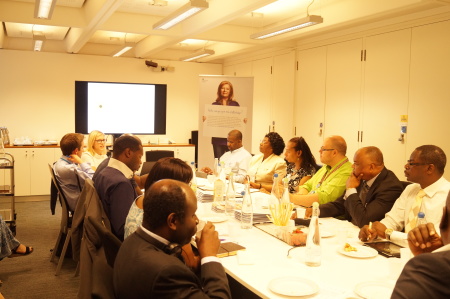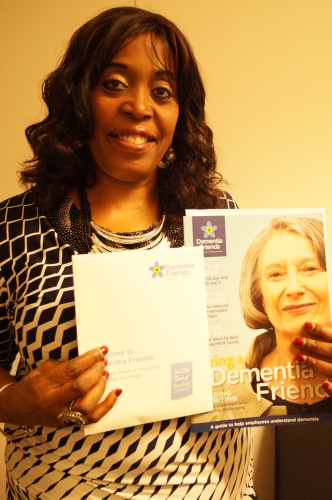Public Health England (PHE) launched a series of roundtable discussions on dementia with faith leaders, in support of the Dementia Friends campaign. The first event focused on how PHE and church leaders can work together to give people better understanding of dementia and address cultural barriers that can lead to African and Caribbean people presenting to their doctors for diagnosis later than their white counterparts, by which time the disease has become more severe.
Launched in May, the Dementia Friends campaign tackles one of the largest health issues facing England and a growing issue for ethnic minority communities. Of the 665,000 people in England and Wales living with dementia, it is estimated that approximately 25,000 are from ethnic minority communities. This figure is expected to rise significantly as the ethnic minority population ages. By 2026 it is likely to have doubled to nearly 50,000 and by 2051 to over 172,000 – representing a seven-fold increase in 40 years.
The Dementia Friends initiative, developed by Alzheimer’s Society, aims to give people an understanding of what it’s like to live with dementia, dispel common myths and stigma associated with the disease and show how we can all make a real difference to people living with the condition.
Pastor Marjorie Esomowei, Triumphant Church International who attended the roundtable discussion said: “The roundtable discussion was very informative. It is our responsibility to make sure the right and positive messages filter down into the community and to those most at risk from conditions such as dementia. We will carry the message forward to help our congregations know more about dementia.
The event has helped us to understand how we can offer support to those living with dementia and their families. I will further publicise what I have learnt today in my TV programme and church conferences. We need to ensure that people understand that dementia is a disease that can be managed with the right medical support and with help from family and community.”
Dr Justin Varney, National Lead for Adults and Older People, PHE, spoke to church leaders about the importance of working with communities to encourage a whole society response to enable people living with dementia and those caring for them to live well. He said:“This event was a great start to an on-going conversation about how we, as Public Health England, and our partners can work with faith and community representatives to understand, and address, the cultural barriers and fears that conditions like dementia raise in communities.
All faiths share a common goal of compassion and support for individuals in need and congregations of every faith can play an important role in supporting individuals, and carers, remaining connected with their community and their faith to live well with dementia.
Working together, involving faith, community and business leaders, we can shift society to be better for people affected by dementia, and fundamentally this makes it better for everyone.”
The roundtable discussions are part of the Dementia Friends initiative which forms part of the Prime Minister’s Challenge on Dementia. The campaign builds on commitments declared at the 2013 G8 Dementia Summit, which included a call to improve the quality of life for people living with the condition.
To become a Dementia Friend, visit http://www.dementiafriends.org.uk/ and watch the short video, or find an information session run by a Dementia Friends champion (a trained volunteer) in your area.











